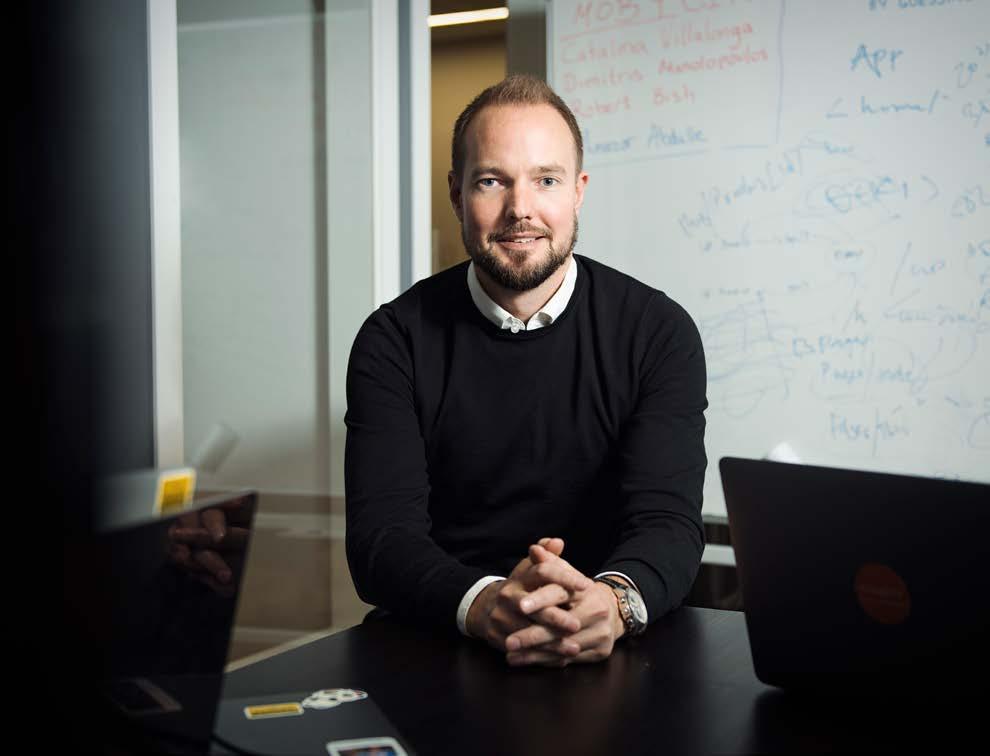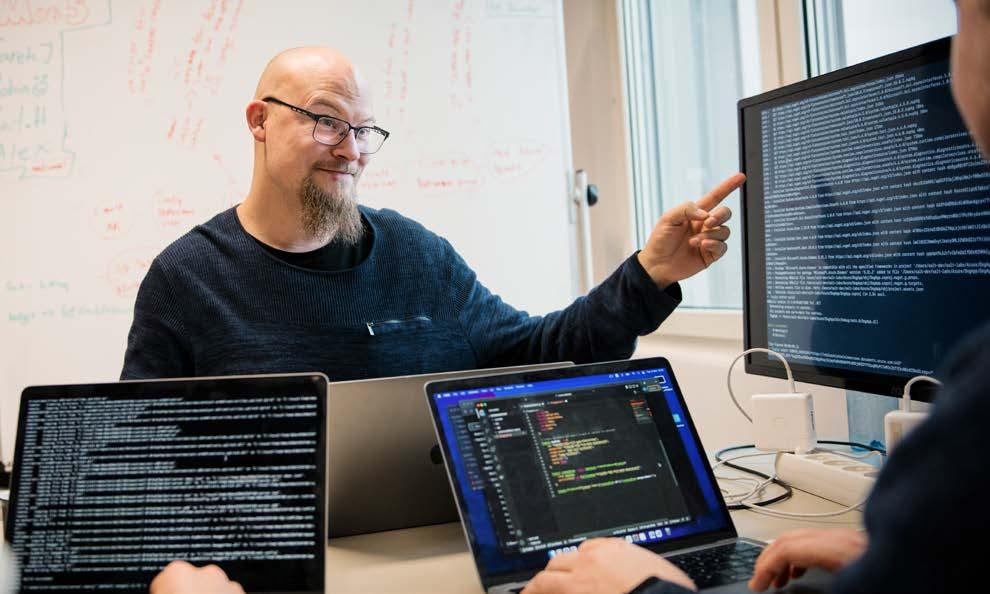
4 minute read
If you can’t find talent, develop it
Access to good talent is one of the biggest challenges tech companies face. SALT has taken a completely different approach. Instead of hunting and gathering talent, they grow it.
TEXT: DAVID J. CORD
Advertisement
Most tech companies are still in the hunter-gatherer stage of recruitment. They use advertisements, job fairs, university placements, employment agencies and headhunters – simply hunting and gathering what they can find. SALT believes tech companies are ready for the evolutionary next step: the cultivation of talent.
SALT takes hobby coders and turns them into professional developers in an intense accelerated learning programme. Based in Stockholm, SALT provides developers in Sweden, Norway and the Netherlands, but the demand is such they are in the process of further expansion in Europe.
Richard Andemark, CEO of SALT, knows how difficult it is to find good developers.
“My co-founder Koshi Hamedi also founded the 3D technology company Donya Labs, where I ran the US operations. The company became the market leader and was acquired by Microsoft,” he says. “So we have run tech companies ourselves and know what they go through trying to recruit. We wanted better ways to do it.”
Turning hobbyists into pros
Coding is a widely dispersed skill. There are many people who learned some in their school days or are weekend coding enthusiasts. They have the basic knowledge and excitement but lack the marketable skills.
SALT solves two problems simultaneously: they help these passionate people become developers, which in turn helps companies recruit the tech talent they need.
“We take people who already have a foundation and train them to be professionals, ready to go to work immediately after graduation,” Andemark explains.
For each term they receive about 1,000 applications from potential participants in the SALT career programme. They go through logic and personality tests, personal interviews, code testing in group interviews and collaboration workshops until approximately 50 are chosen to continue. There is no tuition; the students are chosen solely by merit. They are guaranteed a job if they complete the 14-week programme.
“We basically put them through hell,” Andemark admits. “They start early in the morning and work until late at night. We don’t train them to be ‘programmers’. We help the become real, productive developers, able to work in a modern team using modern methods. That requires more than a full-time engagement from the participants.”

Building quality skills
SALT offers programmes in JavaScript Fullstack, Java Fullstack and .NET Fullstack. Students learn about general development principles and tools as well as programming languages.
Knowing full well the value of talent, SALT recruited the best talent available to develop and manage their curriculum. Marcus Hammarberg is their head of curriculum, having over 25 years of software development on different platforms. He has worked as an agile coach for some of the top tech companies in the world, including Spotify.
“We have never run the same programme twice,” Andemark says. “We are constantly improving, talking to the companies, seeing how the market is developing, studying new tools and processes. SALT creates developers ready to go to work in a company, so we make sure they are in command of the skills companies need.”
SALT is always looking where there are supply and demand discrepancies in technology skills. For example, data engineering is a new programme they are considering.

Richard Andemark, CEO of SALT
Goal: full-time, valuable developers
“After the career programme, we help place them with companies who need them,” says Andemark. “They go through the normal recruitment procedure with the company, their tests, their interviews, everything. The developers work as consultants for twelve months, after which the company can take over employment at no additional cost.”
The tech industry has come under justifiable criticism for its lack of diversity. Yet SALT has been able to recruit a diverse group with over 30 different nationalities. These highly skilled developers have been placed at over 150 companies from small startups and scaleups to more well-known companies such as Söderberg & Partners, Ubiquiti, Coop, Volvo, Bonnier and Polestar. |

If you want to learn more about how SALT developers can help your company succeed, please visit salt.dev










